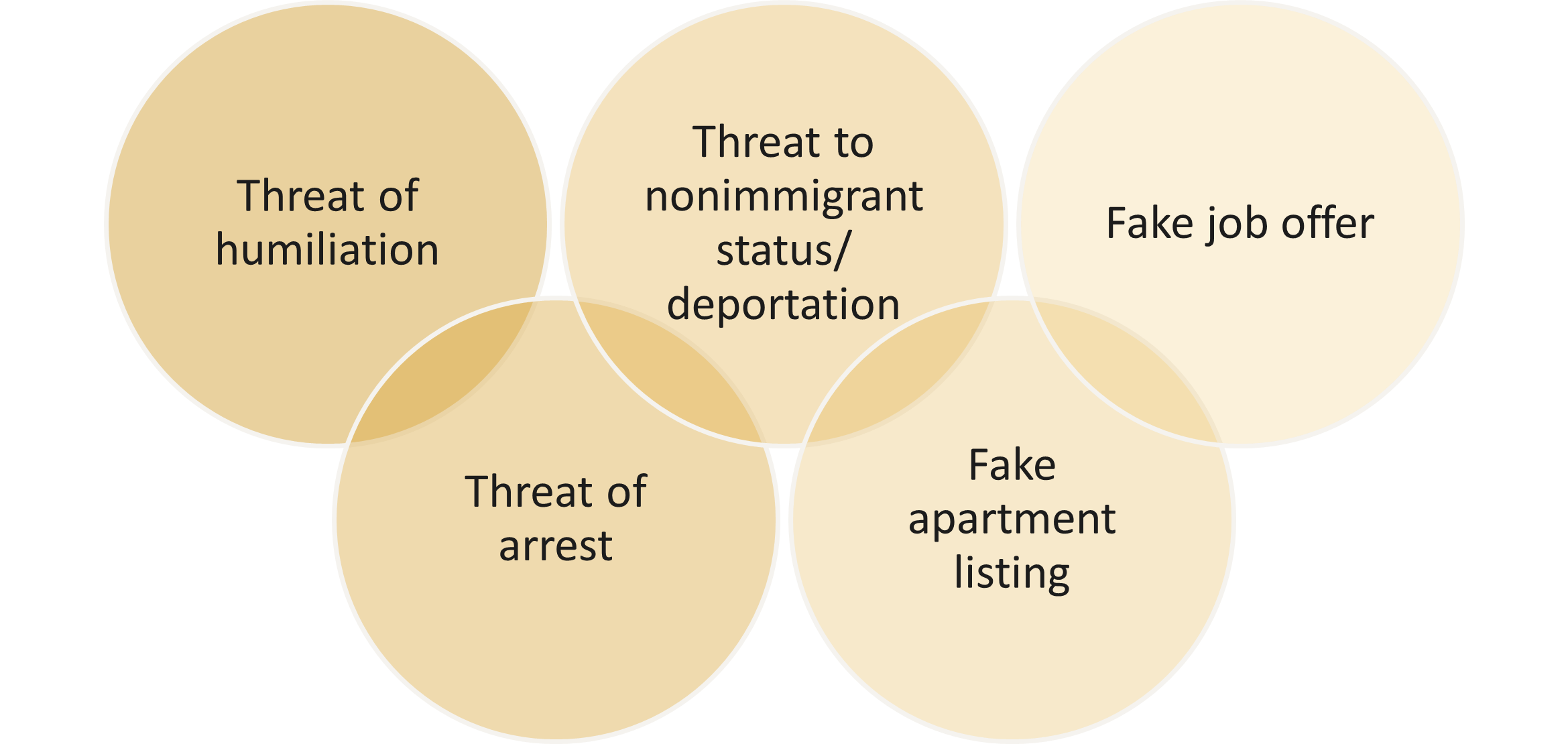Don't be a victim of online scams. Educate yourself on how to avoid them and what to do if you fall prey to one.
Scammers often impersonate trusted groups such as:
- Schools
- Banks
- Doctors
- Government Officials
Be wary of unsolicited contact through email, phone, or text message, as scammers may attempt to steal your sensitive information and assets such as login credentials, bank information, medical data, and money. Watch out for these common themes used by scammers:

- Refer to these scam prevention tips and our phishing guidance.
- Legitimate agencies won't ask for your personal info over the phone unless it's for an initiated application or issue.
- Check for a secure website before sharing sensitive information online. Look for the lock symbol in the browser and avoid unsecured networks.
- Protect your passwords and sensitive information, and refrain from sharing them with untrusted individuals to prevent data and account breaches.
- Beware of scammers who use fear tactics. Genuine agencies don't behave like that. Keep your personal and financial information secure to avoid becoming a victim.
- Be cautious of unsolicited calls asking for money, especially if claiming to be a government agency. Legitimate agencies won't ask for gift cards or PINs.
- Don't fall for scams with too-good-to-be-true offers. Do your research before making any financial decisions to protect your assets.
- Don't hesitate to report any doubts or suspicions. It's better to be safe than sorry.
First and foremost, do not be embarrassed. You are the victim. Second, report it!
- Contact ISSS to report the scam or suspected scam if you are an international student.
- Contact VUPD immediately – even if it is after business hours – and file a police report with local law enforcement. Police reports make it easier to dispute fraudulent charges that occur.
- VUPD Non-Emergency Line: (615) 322-2745
- Metropolitan Nashville Police Department (“Metro”) Non-Emergency Line: (615) 862-8600
- Download the VandySafe app on your phone. This app is free and allows you to contact VUPD directly. It also includes other resources to help you stay safe on campus.
- If you gave out any of your personal information (or suspect that your information has been compromised), contact the fraud unit of one of the three credit reporting companies – Experian, Equifax, and TransUnion. They can place a fraud alert on your record, making it harder for someone to open up an account in your name. You can also request a free credit report to monitor any suspicious activities in your name. You are allowed one free report each year.
- Report the scam to the Federal Trade Commission.

Not sure how to start?
Get in touch if you don’t know where to begin, you can’t find the guidance needed on the website, or if you just want to learn more. The Office of Cybersecurity has subject matter expertise and is here for Vanderbilt community to discuss security questions or concerns.